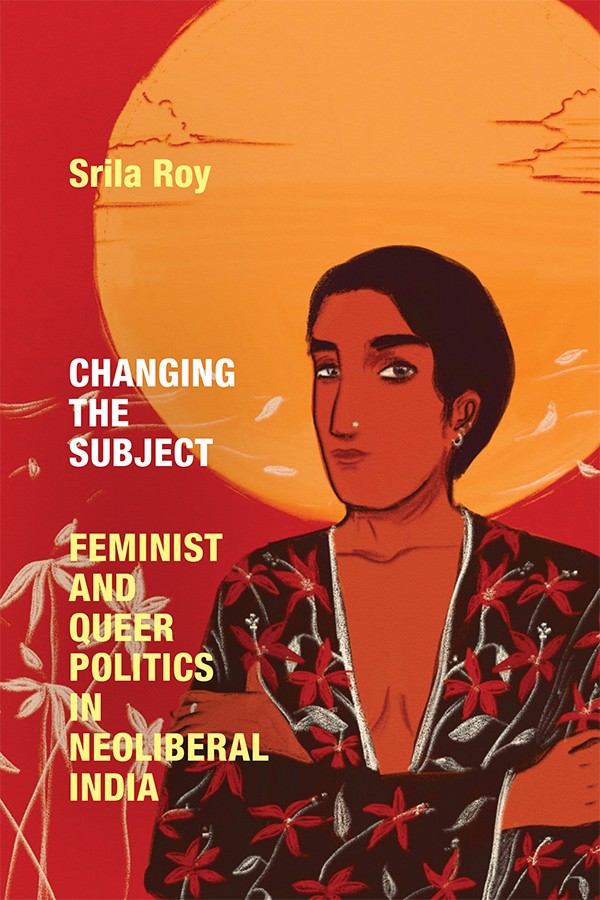Thursday, October 27, 2022
A talk by Srila Roy (Witwatersrand)
On her new book
Changing the Subject: Feminist and Queer Politics in Neoliberal India
Time: 4:15pm - 5:45pm
Location: Room 208 Knox Hall, 606 West 122nd Street, between Broadway and Claremont
Co-sponsored by the Institute for the Study of Sexuality and Gender
Moderated by Debashree Mukherjee (MESAAS)
Discussants: Katherine Ewing (Religion; Director, South Asia Institute) and Niyati Shenoy (MESAAS doctoral candidate)
Srila Roy is Professor of Sociology at the University of the Witwatersrand in Johannesburg and 2022 Hunt-Simes Visiting Professor in Sexuality Studies at the University of Sydney. Her long-standing research and teaching expertise is in the area of transnational feminist studies. Her latest books are the co-edited Intimacy and Injury: in the wake of #MeToo in India and South Africa (Manchester University Press, 2022,) and the sole-authored Changing the Subject: Feminist and Queer Politics in Neoliberal India (Duke University Press, 2022). She is a co-editor of the journal, Feminist Theory, and the recipient of the inaugural FTGS Global South Feminist Scholar Award from the International Studies Association (ISA). At Wits, she leads the Governing Intimacies project, which promotes new scholarship on gender and sexuality in Southern Africa and India, supported by the Andrew W. Mellon foundation.
Niyati Shenoy is a PhD candidate in Middle Eastern, South Asian and African Studies at Columbia. Niyati is a Fellow at the Heyman Center and currently works as a Core Preceptor teaching Contemporary Civilization. She is writing a history of rape in colonial north India. Drawing on caste and sexuality studies, historical anthropology, and theories of affect, the work explores how the meaning and significance of rape changed in South Asia over the course of the nineteenth century as colonial law replaced existing mechanisms of redress for illicit sex, tracing a genealogy of postcolonial tolerance for sexual assault as well as the failures of carceral and state-aligned feminisms in contemporary India.

